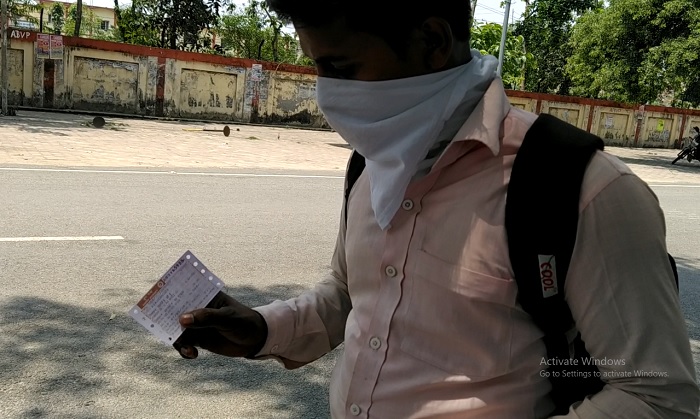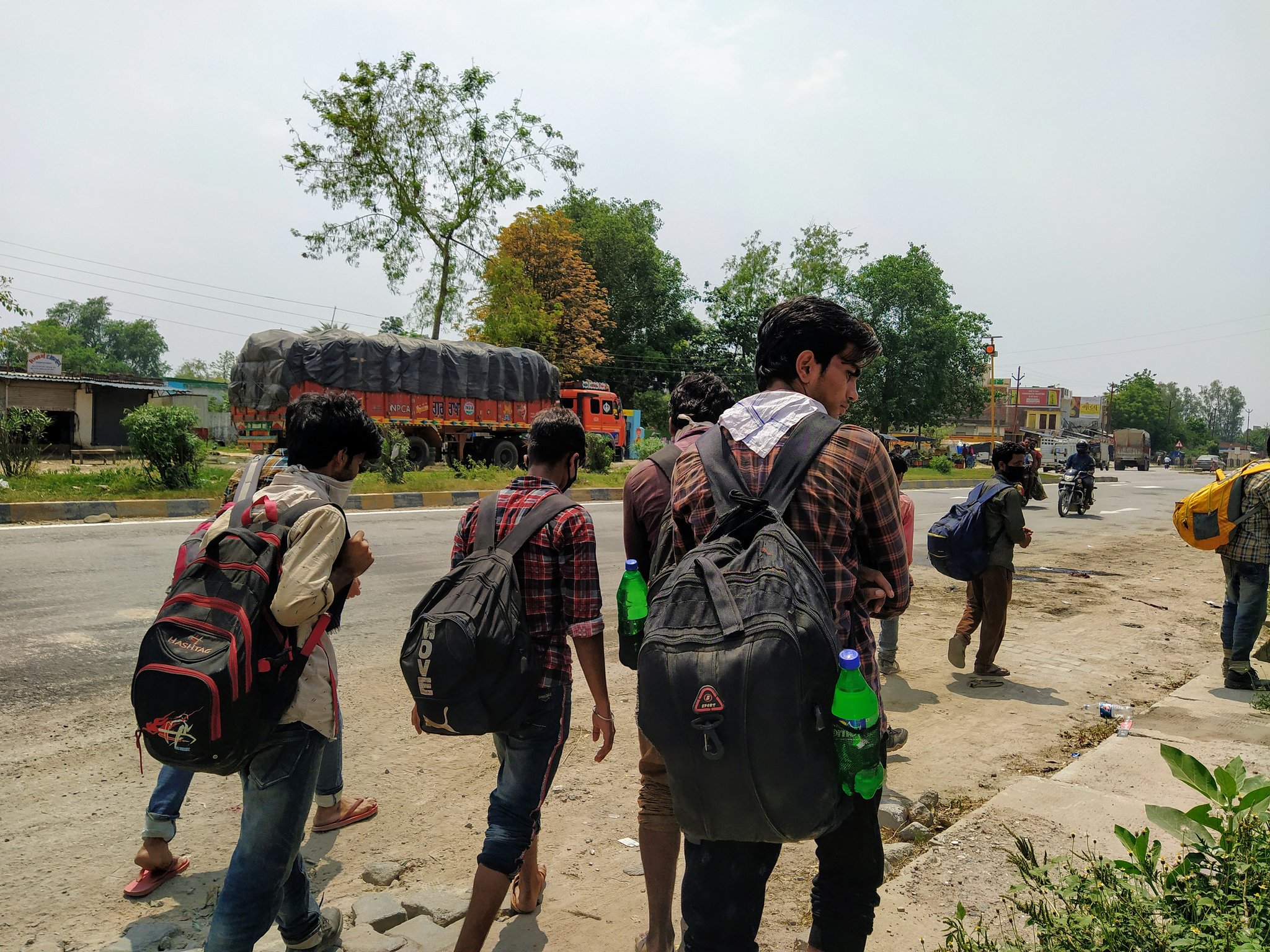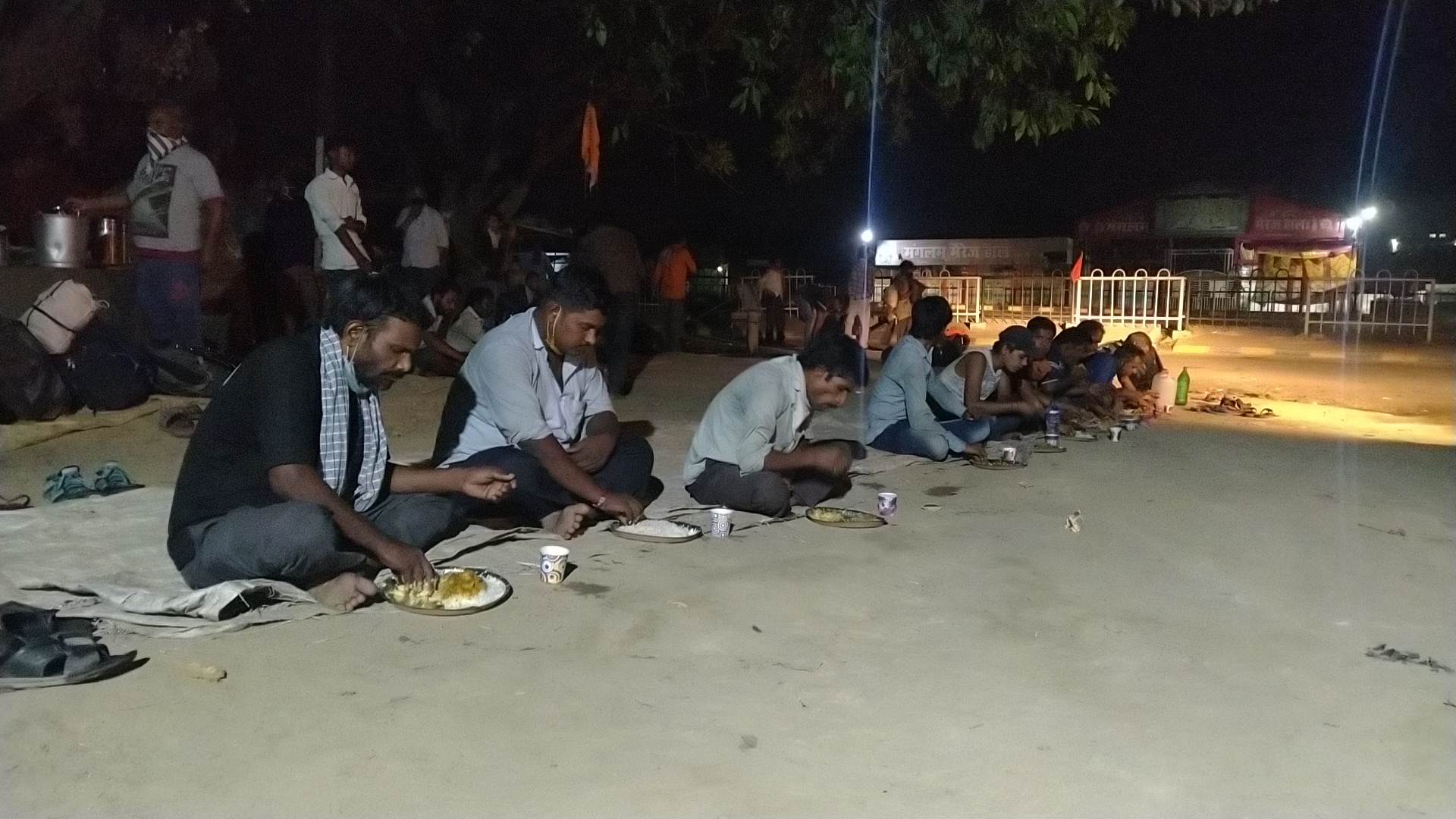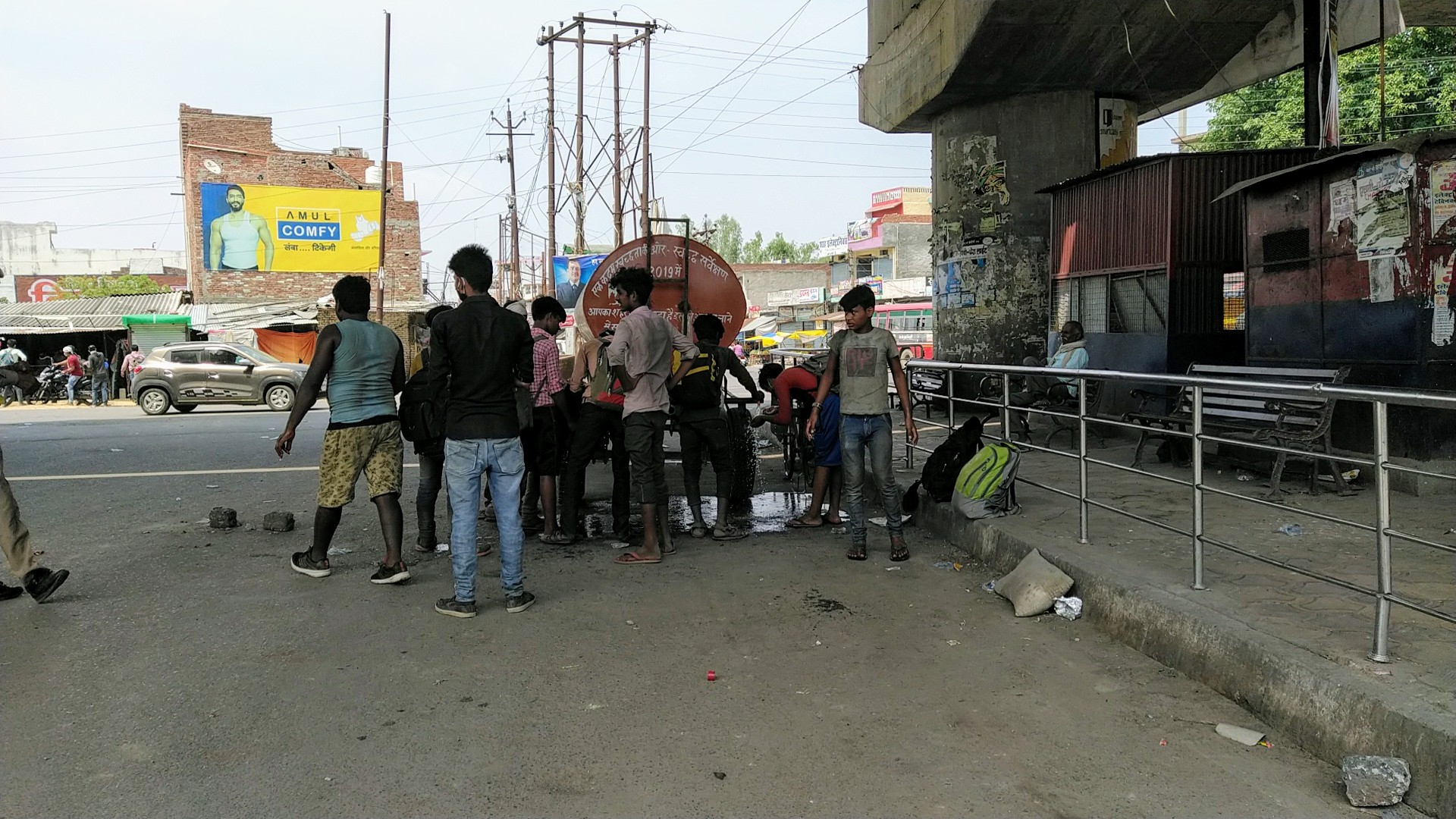Reverse Migration: What do these migrant labourers have to say about going back to the cities?
Migrant labourers have suffered a lot during the lockdown. After a long wait, they started moving back to their home. The homecoming, too, was full of struggles. Now, they are staring at a blank future

Gorakhpur
For the past eleven years, Mohammad Mustafa, 37, who worked at a power loom factory in Bhiwandi, Mumbai, had been visiting his home at Khalilabad in Uttar Pradesh just once a year for Eid. This time, he returned in the month of Ramzan, but the situation has changed. Previously, his bag always had new clothes for his family and toys for children, but this time his bag is empty. He is just happy having somehow returned home.
After the announcement that the government would be running Shramik Trains for migrant labourers stuck in different cities, Mustafa had registered for a seat with his friend Shamim. But even after a week, he did not get any message for the tickets. His patience ran away and he left from Mumbai for Khalilabad on foot.
He undertook the entire journey either on foot or by hitching a ride on trucks and so managed to cover 1,500 km in a week. After reaching home, he seemed a little relaxed, but does not wish to go back to Mumbai again. “It is very difficult to go back there after what all we were made to go through. There is a small patch of farming land that I have. I would set up some small business up, but not go back.”

Prem Sahni, 24, was not as unfortunate as Mustafa and Shamim. He managed to board the labour train run by the government, but contrary to the government claims of free tickets, was charged Rs 620, which was more than the mentioned fare of Rs 500 on the ticket. He was told that for Rs 120, he would get food and water on the train, but in a journey spanning more than 24 hours, he got only buttermilk, namkeen and a bottle of water.
Prem has returned from Ahmedabad in Gujarat to Maghar in eastern Uttar Pradesh. He has been working as welder for the last two years. When asked if he wants to go back, he said: “Not immediately. But once the normalcy is restored, I would go back because the opportunities to work in the village are very poor.”

In metros like Mumbai, Surat, Delhi NCR, the reverse migration of migrant labourers from eastern Uttar Pradesh and Bihar and who have been living in these big cities for years, is continuing. The number of migrant labourers coming from the city has also increased in lockdown three and four. These labourers have crowded on National Highway-27 connecting eastern Uttar Pradesh and Bihar via Delhi, Mumbai to Lucknow. Somebody is travelling by sitting on the roof of some truck and somebody by a bus or labour trains arranged by the government, while those unable to get any transportation facility are slowly inching towards their villages on bicycles or simply on foot.
As per the data released by the government of Uttar Pradesh, more than 14 lakh migrant labourers have arrived in the state by 838 trains. When added to the number of labourers arriving on buses and on their own, the total count exceeds 20 lakh. The Bihar government has also informed that about 6-7 lakh migrant labourers have returned to the state since the lockdown. In fact, several experts believe it to be the biggest migration since partition.
Most of these homebound swear that they won’t ever return to the city after all they have suffered during the lockdown while some have admitted to thinking twice before doing so in the future hour of need. However, there are some who accept that they have no choice and after the situation is put right, they will have to head back to the metros.
Mohammad Ashraf walked from Mumbai to Arariya in Bihar, along with his nine companions. Intermittently, they got lifts on trucks or in buses. Ashraf said: “Even after more than 50 days of the lockdown, we did not get any ration or money from the government. My colleagues and I had also applied for a migrant labour allowance of Rs 1,000 that was being provided by the Bihar government to the labourers living outside the state.”

It may be recalled that during the lockdown, governments have consistently claimed that they will not allow the migrant labourers stranded in their state to face any problem of ration and food and a continuous supply of the same is maintained. The central government is also saying that they have adequate ration and it is being allocated to the states under various quotas. But the reverse migration of the workers is a testimony to the inadequacy of such measures.
Aakash Nishad, 18, from Sant Kabir Nagar in Uttar Pradesh, used to make packing boxes in Vasai, Mumbai. Two years back, at a very young age, he had left home for Mumbai. When asked about the difficulties faced during the lockdown, Aakash told Gaon Connection: “Don’t even ask how difficult it was. Even if one stepped out to fetch some vegetables to eat, the police used to beat with lathis driving us away. Once, in the name of the government aid, two kilos of rice was given. Tell me, how many days could it have lasted. Gradually, my pocket emptied out. When I was left with only Rs 1,000, I decided it was time for me to go home.”
Akash Nishad had somehow reached home by the truck, but has to spend Rs 1,000 for that. The difficulties that he has faced during the lockdown have made him so frustrated that he swears he will sell vegetables in the village and work as a field labourer, but will never go back to Mumbai. Akash says that since he did not have any farming land, he had no option but to head to cities to earn. His elder brother, Parasuram Nishad, 21, is also a migrant labourer. He works as a carpenter in Silvassa in Dadra Nagar Haveli and too has returned home two days ago.
He, however, said: “There is nothing for us to do here, so when everything is alright, we will have to go pardes (outside) to earn.” Migrant workers in eastern Uttar Pradesh and Bihar are generally called pardesi. After the wheat harvest, the number of these pardesis increases during May-June as most of the places in the area are flooded soon after and there is not much to do in the fields.

Arvind Pal, who worked as a moulding machine operator for the past two years at an automobile company named Premier Indoplast in Vallalbhgarh, Haryana, said: “Immediately upon the lockdown, the company withdrew its support despite us being its old and regular employees. We were told at that time that there was no work and it was not expected to start any sooner. We spent 40-50 days upon our savings, but when that money too was over, we had to return home.”
With Arvind, his brother Govind also did the work of loading and unloading in the same company. Together Arvind and Govind have to run the household of six. So, on the question of going back, Arvind expresses his helplessness. He said: “We would have to go, what we will do in the village? We don’t have any land to cultivate. If we had any, we would never have left the village.”
“The situation is the worst for those who do not have any farming land or who have not learnt any skills from the city,” said DM Diwakar, head of the Department of Economics at AN Sinha Institute of Social Sciences, Patna. In a phone conversation with Gaon Connection, he said: “Though the circumstances are not favourable to anyone, everyone has left one’s job and a settled house behind. But those who have farming land or who have some skill will be able do something here as well.”

People may consider the labourers’ refusal to ever return to the cities as sentimental and believe that after the situation becomes corona free, the labourers will again return to the metros but DM Diwakar believes that the existing resolve is fuelled more by fury than mere sentimentality.
“It is not correct to just assume them to be sentimental looking at what they have seen and endured since the lockdown. These labourers have learnt some skills from cities, so it is now the responsibility of the state governments and the local administration to harness these skills as a valuable resource so that the labourers are not forced to flee again,” Diwakar said.
After written letters from DM Diwakar and his other colleagues, the Bihar government has included asking about the skills of migrant labourers coming from outside along with their thermal screening, so that their skills can be used and they can get employment. Similarly, the Yogi Adityanath government of Uttar Pradesh is also claiming that it will prepare skill data for migrant labourers coming from outside so as to provide skill-based employment to the workers.
The Yogi government has also launched the ‘Pravasi Rahat Mitra’ app, wherein the workers are also being asked to feed their names, educational qualifications, addresses, their skills and experience besides bank accounts. The government says that based upon the data received from the app work will be given to the labourers. However, it remains to be seen how much these state government schemes will be able to succeed in controlling this migration of labourers that has been running for decades.

